Like Zhang Ning had done eight years earlier in Beijing, Spain’s Carolina Marin headed into the Olympic fortnight without a Superseries title in the same year and came home with gold. The Spaniard completes the full set of achievements required for badminton legendhood: current world #1, defending World Champion, preceded by a 2015 All England title, and now Rio gold.
By Aaron Wong. Photos: Yves Lacroix for Badmintonphoto (live)
To win at badminton, one side must impose their ideal rhythm on the match and in the women’s singles Rio Olympic final, Carolina Marin and Pursala Venkata Sindhu both chose to live and die by the sword of sensational acceleration, with the former carving out a 19-21, 21-15, 21-15 victory.
Spain’s Marin made it to the final without meeting any in-form players and the last hurdle would be her toughest match. Conversely, India’s Sindhu had to weather four stiff tests including dumping two recent Superseries champions and the top Chinese.
The Spaniard constructed and dictated the match with a dented but impenetrable game plan and fierce mental resilience. She stamped the lead in all three games and even the blip that was losing the first was largely hers to bestow.
At the first interval between games, Marin shrugged her shoulders at her coach as if to say Didn’t I do everything right so where did it go wrong? Eager at the prospect of going one up and without realising it, she made the classic mistake of breaking flow to consciously measure out failed tighter net shots during the last few exchanges when she should have continued to trust the muscle memory from all her training.
Sindhu was especially effective throughout in deflecting fast drives using her wristy reflexes which produce exceptionally steep replies often before her opponent had recovered balance.
In the no-time-to-think stakes of their incredibly pacey rallies, Sindhu’s push shots let her down and landed quite long of the rear boundary. Cognizant of this weakness, she tried as much as possible to avoid further use of this stroke by proactively designing rallies demanding less accuracy and delicacy on shuttle control.
The high velocity heavy cross-court angled play refused to abate into the rubber game. The rally of the match, as Sindhu advanced from 9-10, contained everything bar throwing the kitchen sink. Sindhu’s sharper, straight flying, quicker shot-making as a result of little torso involvement met Marin’s dangerous left-handed curving and dipping cross-court slices and in this particular instance so strained the Spaniard’s physique that she limped a little afterwards.
Overall, however, Marin’s superior movement around the court afforded an edge in this match because she continually addressed shuttles in the best possible balance and recovery states thus giving her good control on the shuttles, whereas Sindhu had started to play with a reduced palette of strokes to eliminate her own unforced errors.
Spanish coach Fernando Rivas promised a new Carolina Marin by the time of these Games and indeed there is a fresh major dimension about her. Marin has made it so that backing her into a corner means just asking for a Jane Bond-style escape. It is not one new fluke shot she’s innovated but a whole study of how to turn the situation that for now is for the rest of the pack to solve.
A great singles final takes two to make happen. The clash with Li Xuerui illustrated the towering quality in all departments of Marin’s badminton repertoire and then a day later P. V. Sindhu helped reveal how solidly the Spaniard could emerge from a game’s deficit and produce the same consistency under the pressure of onslaught and occasion.
The Indian player walked round to heartily congratulate her opponent with more than the usual cursory grazed handshake across the net and, likewise, Marin returned the respect by heading over to the other side to acknowledge India’s coaches.
Click here for complete Friday results
![OLYMPICS WS Final – The new Marin is for real Like Zhang Ning had done eight years earlier in Beijing, Spain’s Carolina Marin headed into the Olympic fortnight without a Superseries title in the same year and came home with […]](http://www.badzine.net/wp-content/uploads/ngg_featured/20160819_1226_OlympicGames2016_Yves2812_rotator.jpg)
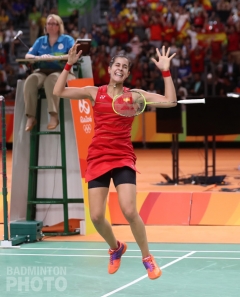
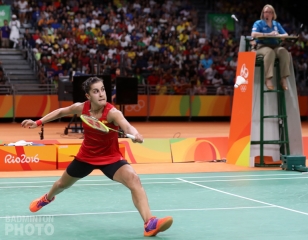
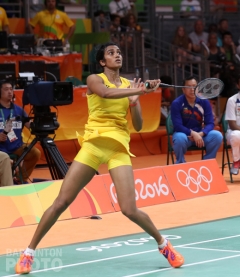
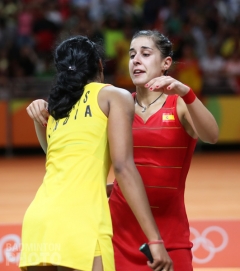
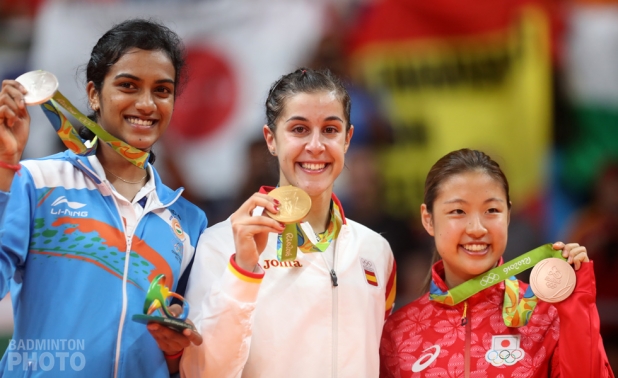


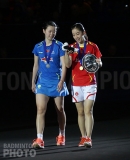
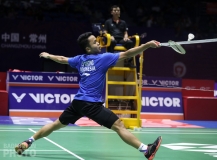
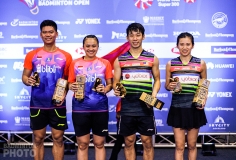
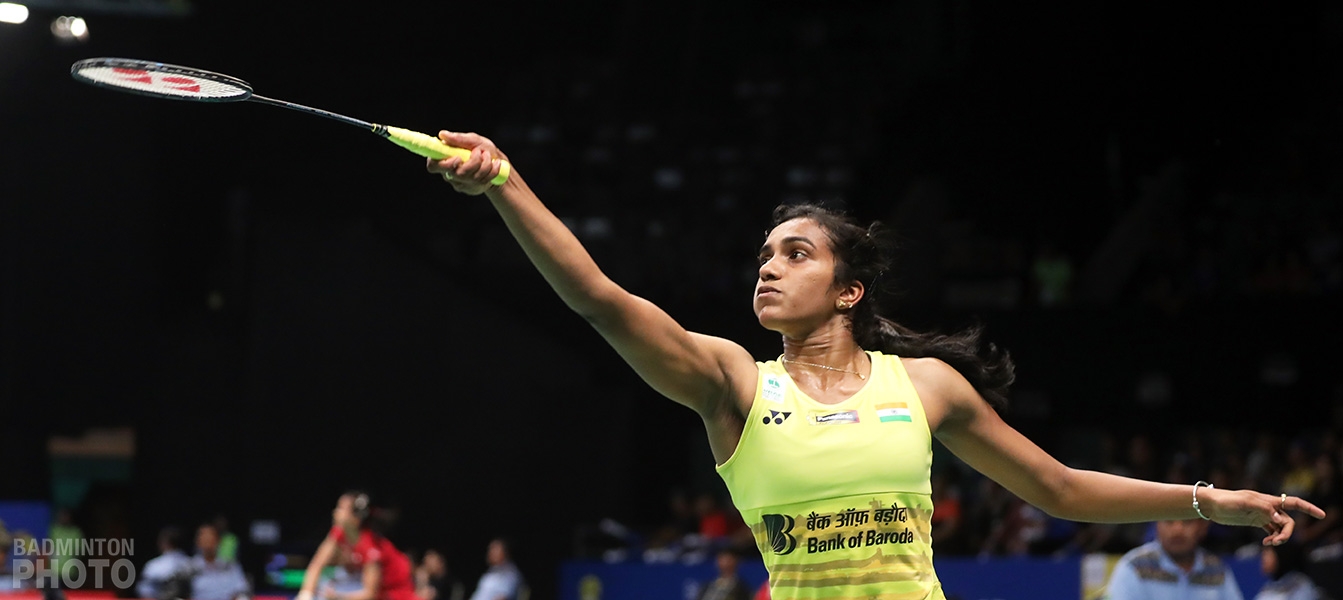
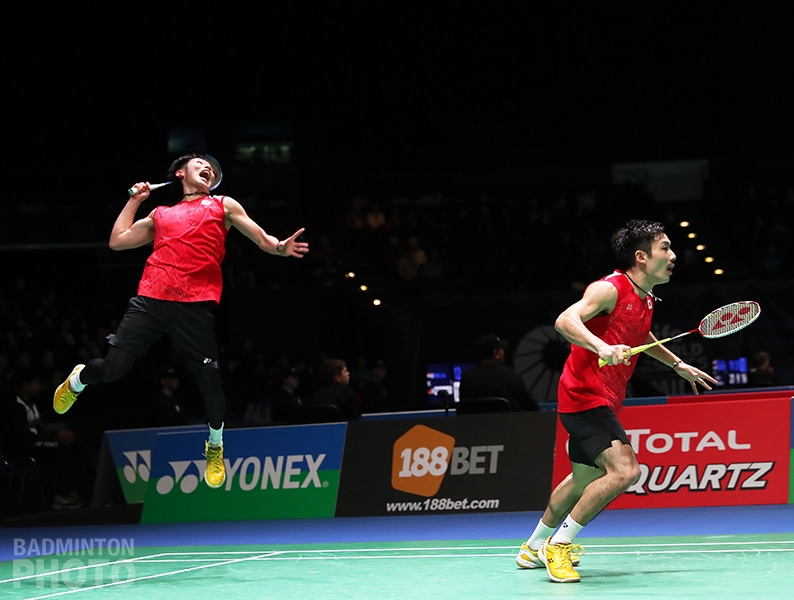
Leave a Reply